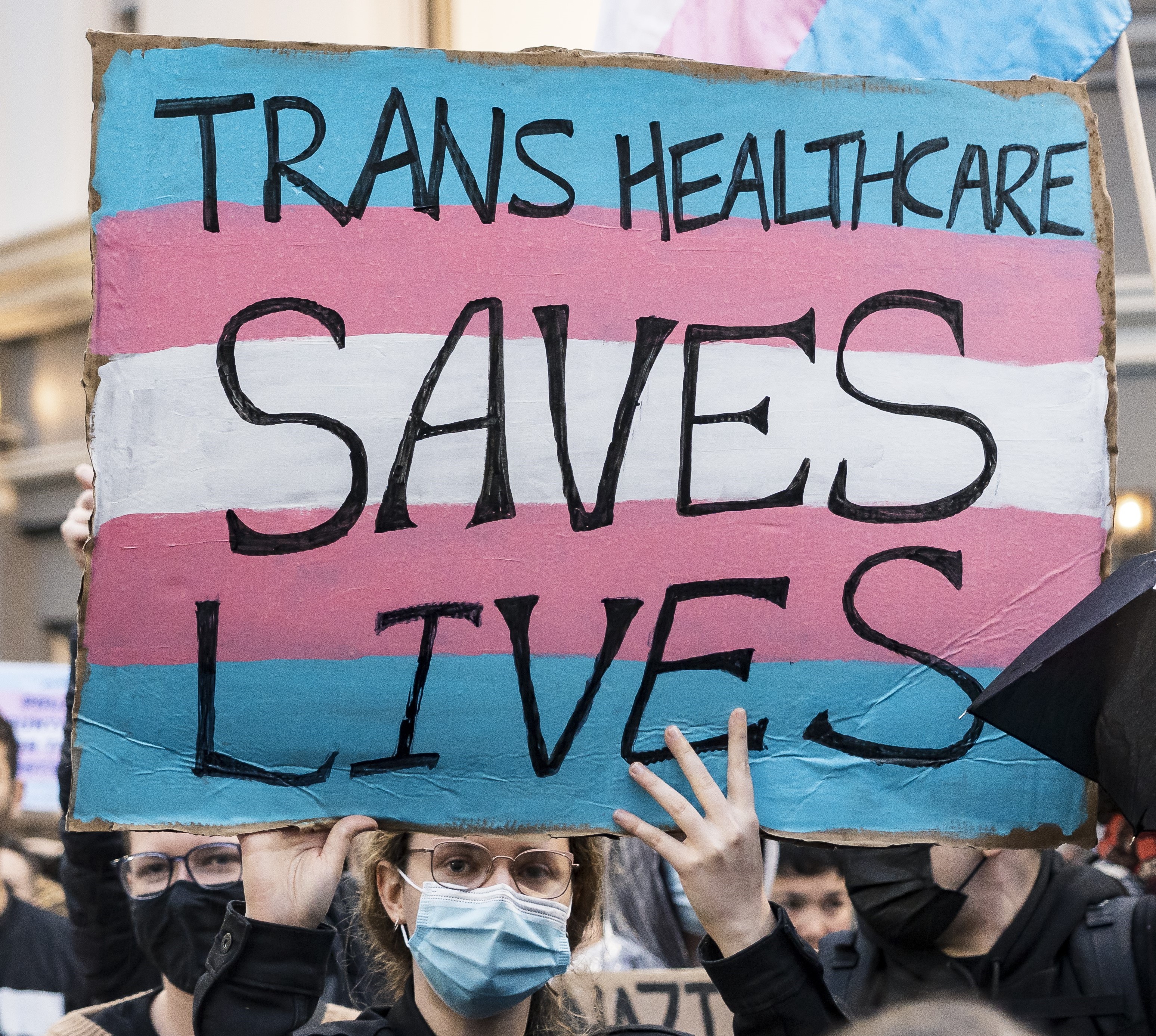Edward Kelly, Jr. is a former Pentecostal Fundamentalist minister. He lives in Bellevue, Nebraska and works as a case manager at Heartland Family Service.
Imagine this scenario: Stephan had made the appointment with her primary care doctor as a last resort. She had recently developed a habit of delaying seeing a doctor until the symptoms became overwhelming, and the symptoms now were unbearable, so she called. But she knew they would say the same thing. “Stephan, we still do not have a legal change of name. We have you as Stephen.” They just would not recognize her gender nor her name.
It was one big hassle. And when they came out and called her to go in, it was always the same: “Stephen.” She would walk up, and they would announce to the doctor, “Stephen is here.”
Sadly, this scene is becoming more prevalent. Transgender people who are already experiencing discrimination in other sectors of society are now commonly experiencing bias and microaggressions from health care providers. The U.S. Transgender Survey found, “Nearly one-quarter of respondents (24%) did not see a doctor when they needed to in the last 12 months due to fear of mistreatment.” Another 48 percent reported experiencing at least one negative interaction with their clinician. The most frequent negative interaction was misgendering.
Definitions:
Microaggressions: a comment or action that subtly or unconsciously, unintentionally expresses a prejudiced attitude towards a marginalized group.
Misgendering: the repeated use of gender pronouns inconsistent with a person’s current gender identity.
Deadnaming: the use of a patient’s legal or birth name rather than their chosen name.
Transgender people who experience discrimination like this in a health care setting are more likely to experience what is called minority stress, resulting in chronic inflammation, increased levels of cortisol, and immune dysregulation, leading to an increase in diseases. These biased stress events also result in an increased use of alcohol and marijuana to cope with the emotional stress.
The health care industry must not follow the government’s approach when it comes to the principles of diversity, equity, and inclusion. We must follow the principles of autonomy and respect; that is, a patient’s right to self-determination, to act in the patient’s best interest, and to do no harm.
Health care providers need to change how they operate, developing a process to build honest relationships and patient-centered, culturally responsive approaches that communicate a commitment to gender affirming care, both structurally and individually. The structural intake software should be changed to include culturally up-to-date affirming questions. Staff definitely need training on the lost art of respect in developing affirming interpersonal interactions instead of microaggressions that do harm.
Respect will make a difference.
Consider this approach:
Stephan entered the lobby at Front Street Clinic. Mary was on duty at the front desk. She had recently attended a training on affirming care.
“Stephan, good to see you. It has been a while.” Stephan was surprised, and a smile appeared on her face. “Stephan, what is your birth date?” She responded.
Mary said: “Oh, I see they have not updated your name. Would you like to change it to Stephan?” Stephan replied “Oh, yes. Thank you.”
Mary then asked, “We ask this of all our patients but what is you gender?” Stephan replied: “I am female.” “I will change that as well. So have a seat and I will get you into see the doctor as soon as he is free.”
Stephan went and sat down. She heard in the background, “Doctor, your next patient is here, Stephan Smith.” She smiled and thought, “Wow, maybe this won’t be as bad as I thought.”
Top photo taken at the Transgender Day of Visibility 2023 – Naarm (Melbourne) rally is by Matt Hrkac, available via Wikimedia Commons.


1 Comment
appreciate any and all calls to treat people seeking healthcare
with dignity, in general we need to stop treating trans people as “mentally” ill, one shouldn’t have to get a diagnosis from the DSM to receive medical treatments.
dirkiniowacity Wed 17 Sep 5:49 PM